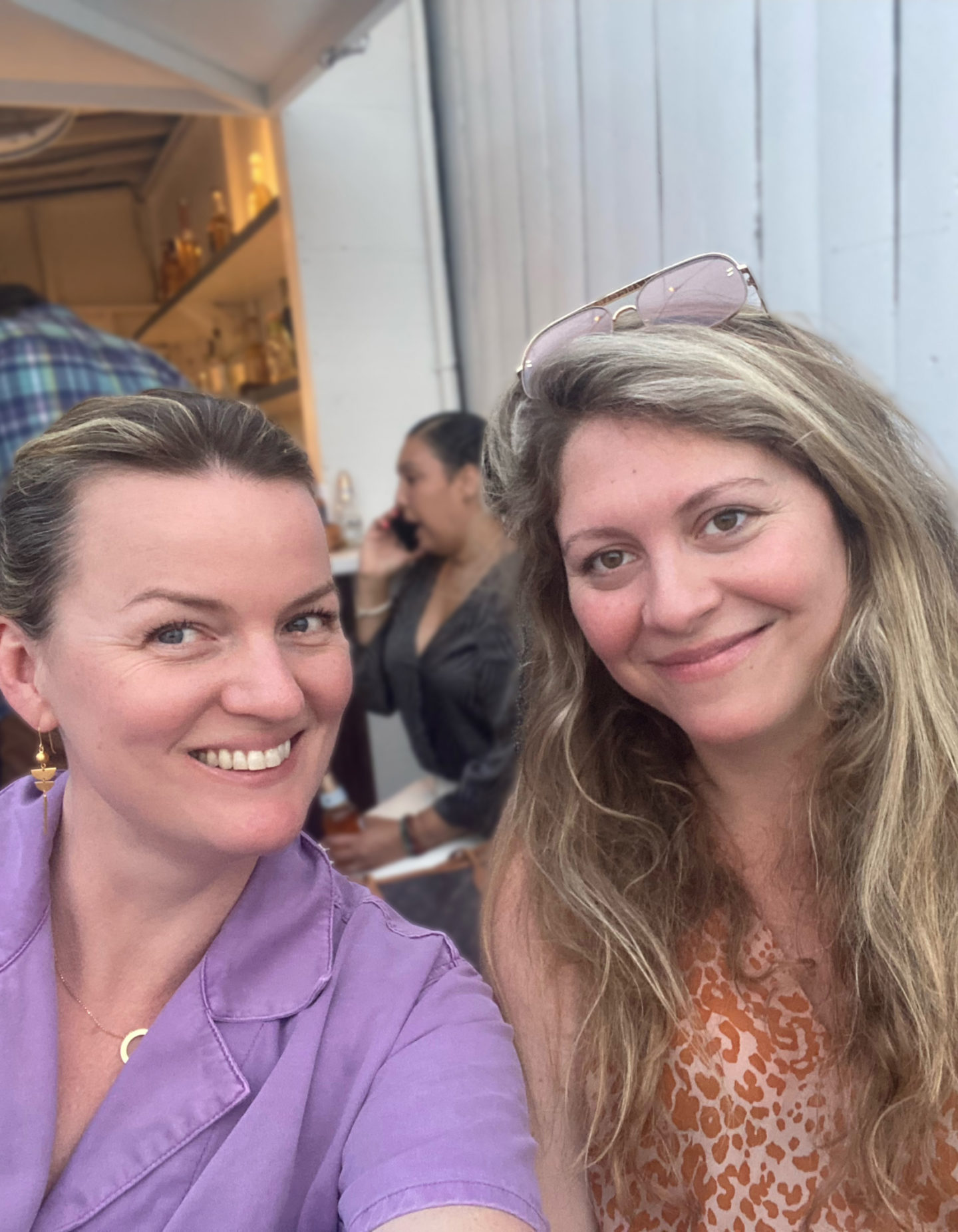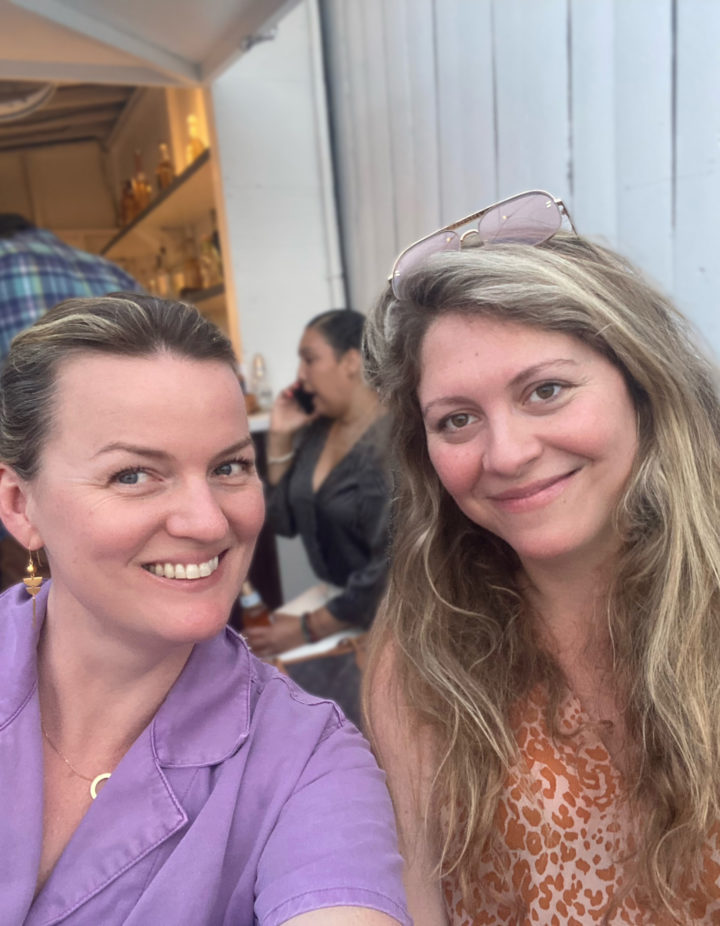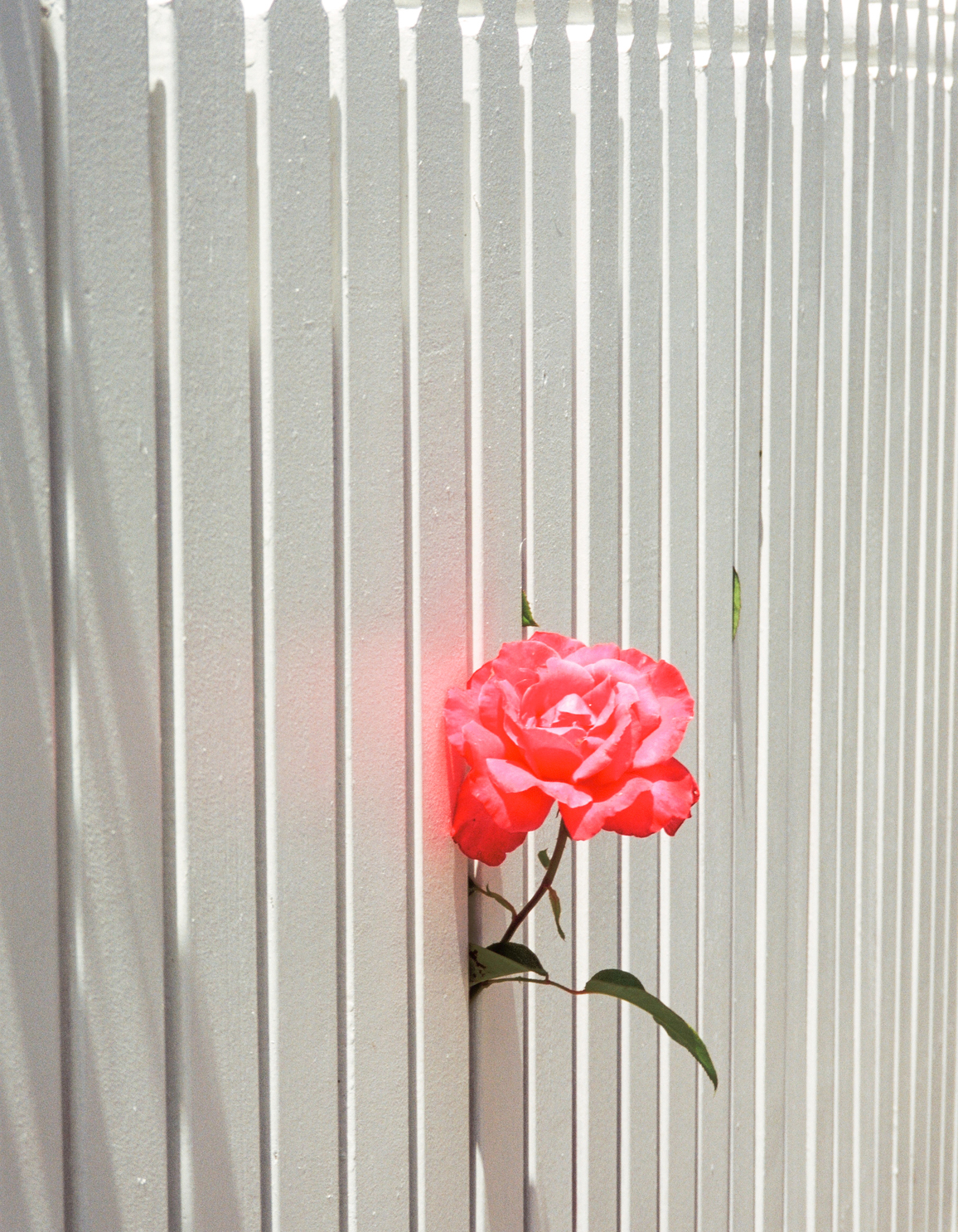Rachel Baker and Maggie Bullock have hot takes, lots of them. As former work wives at Elle (where they were both editors in the ladies’ mag heyday), not to mention text chain life-mates, writers, and, somewhat separately, moms, they find themselves discussing everything from the slow dismantling of Roe v. Wade, to parenting trends, to the latest celebrity divorce.
So they did what only felt right. They started a newsletter. The Spread is a weekly round up of the best journalism and most major news taking place (where else?) on the internet, that’s picked apart, tossed around, cooked up and served hot with a heaping side of spicy analysis by Baker and Bullock.
So naturally we had to get these ladies on the line to get a sense of what they’re thinking about, talking about and feeling around for these days, and how whether you’re up all night nursing or angling for a good old fashioned read before your long haul flight, The Spread has you covered.
So what’s on your minds these days?
Rachel: I’ll say what’s on my mind. Just minutes ago, I got back from an internal pelvic massage because I’m very pregnant and having some pelvic floor issues and I have a team of people working together on my pelvic floor, including this woman who massages the inside of my body four times a week.
Maggie: I’m a support member on Team Pelvic Floor. I get minute-to-minute updates on the status of the general region. If I were there, I’d be physically wrapped around your body, lifting the baby up.
Rachel: Maggie, you’re for sure on that team. And by team I mean I’m counting the woman who’s massaging my perineum. Maggie, you can be number nine on my team.
Maggie: I get texts while Rachel’s perineum is being massaged. We’re close.
Rachel: But really, what’s on our minds? Maybe it’s true to the nature of The Spread, but we’re constantly processing our lives as mothers and working mothers, and The Spread formed out of that. It has a personal basis in our lives. Rachel and I dealt with infertility, we’ve been through a lot of physical, ethical, financial and emotional milestones. It’s one of the things we have in common. So with The Spread, we’re always talking about anything with those issues. We also talk a lot about baby naming, about issues of identity and gender. All of that stuff. It’s a huge part of the bubbling pot that we’re always thinking about.
Between the two of us, we cover most age cohorts. I have an 18-month-old and I’m T-minus two months until I give birth. Also Maggie has a four-year-old and seven-year-old. I also have two big step-kids who are 11 and 15. We really have the whole range to talk about, which is rich.
Maggie: Most of our friends are raising kids. So we’re in a group that’s thinking a lot about these issues. We’re processing some social stuff happening right now. It’s interesting. My seven-year-old is bringing me into stuff around gender and trans rights and identity and sexuality. That’s super early. But we live in liberal enclaves and our first graders are head on dealing with it. It’s very much happening in my house and in my family, which is great.
Rachel: Having older kids while being pregnant is a really easy way for us to talk about so many reproductive, gender, social, cultural and emotional dynamics with our older kids. During the pandemic, when I was pregnant with my first pandemic baby, and before my pelvic floor was shot, my big kids and husband and I would hike all the time. And they could ask questions in a safe space. I’d be hiking with our 14-year-old, and he would say, “So how do trans people have babies?” And my husband would say, “Rachel, why don’t you take this one?” And we’d talk about it. They would ask what they wanted to know, and they were always leading us and we don’t lead anything. We’re not in charge. The inmates are running this prison.
And we always talk about what we’re not allowed to say and political correctness. It’s interesting and constantly changing and it also applies to our kids. There’s cancel culture and political correctness. The Spread is out there and we’re unafraid but we do make mistakes from time to time.
Maggie: We both came out of establishment media, so everything we wrote and edited went through weeks and weeks of revisions and edits. It had multiple eyeballs on it, and it was highly scrutinized. We were some of those people doing that, too. Now we write the newsletter together and it’s fast and furious. We write it in one day and it goes out that night and we do have this very smart, nice lady who helps us copy edit. She saves our ass every week. So this feels very immediate and we shoot from the hip. Can I say that one Rachel?
Rachel: I think that euphemism is still OK.
Maggie: We love the immediacy of it. But we’re also swinging from limb to limb hoping not to mess up horribly.
Rachel: We’re talking about hot button stuff. It’s a combination of shooting from the hip that’s fast and furious, but with a collection of stories we talk about all week long. We’re putting pen to paper like crazy on Tuesdays. We usually cover 10 or 15 ideas in the newsletter. It’s a combination of our former jobs as print magazine editors, where we’re making the whole animal and putting our name on every bit of it. It feels a little exciting and scary.
Maggie: It’s fun to do it as a duo. I couldn’t do this by myself. It wouldn’t be fun to do this by myself. I like many things, but the fact is this burden doesn’t rest on either one of us. We have to have each other’s backs. Rachel is out there safeguarding me from my own outdated idioms and I’m trying to manage her heartaches, which can be spicy.
Rachel: I want to write about it all.
Maggie: We came from women’s media, so everything we do and the way we think is always filtered through that. Sometimes what we write about is not necessarily what people would define as women’s stories, but something that we, as women, find relevant. That’s why we started The Spread. I think motherhood is an indelible aspect of our lives. It’s always going to be a certain percentage of what we cover. And it’s what we wanted to gravely talk about at this stage.
Rachel: But not everything is that and we try to be conscious of that, too. I like being a parent and going on dates and having moments alone where our rule is please stop talking about the kids. We cover it but we want it to be one slice of the pie. Sometimes I want to talk about things not through a mother’s lens. And there are people I know who read who aren’t moms and don’t fit our demographic, and I want to be conscious of that. We can’t take the mother out of the woman, but I’m as interested in women’s decisions not to have children as I am in parenting. And I’m always looking for unconventional narratives.
I’m as interested in women’s decisions not to have children as I am in parenting.
Maggie: We go through things that have happened in the last week. Sometimes there’s genuinely great reads. Or it says something about the culture that’s relevant or super quirky and funny, and you put it all together and it’s our mini magazine of the week that we get to make using other people’s great work, but it’s also our own takes. We choose things we have something to say about which isn’t that narrow of a bar.
Rachel: We have a lot to say.
Maggie: I feel like I’m in my 13-year-old bedroom where I’m ripping apart magazines and putting them on the wall. I really idolized print magazines and the stories and pictures and covers and there’s a version of us doing that with our mental scissors, where we’re collaging together our dream magazine for women about women or women adjacent humans.
Rachel: That’s how we originally conceived of The Spread. It was Maggie’s idea to have a newsletter because there was too much out there to read. We always talk about how traditional women’s magazines are thinning, but that mainstream media organizations are covering women with a rigor they haven’t before. There’s lots of stories in The New York Times, The Atlantic, The New Yorker – where five years ago there wouldn’t have been. It’s a lot to get through each week. So we’re a one stop shop.
Maggie: The original idea was to do a reading list. A friend of mine was going on a long haul flight with her family and got so excited to go to the newsstand at the airport. Then she realized nothing was there – even at the airport, which is the last bastion of all magazines. So I felt The Spread was a way to prove that there’s still really rich stuff to read, but you have to know where to look. And who has the time? Yesterday, I spent hours scrolling through women’s sites and it was all “how to clean pores,” or “15 pairs of new sneakers.” It’s all junk food. We’re looking for things that are more sustaining.
Rachel: People often ask me how The Spread is different from other sites out there doing similar work. We think we’re the full fat version of what’s already out there. We’re going deep on these stories instead of skimming the surface. That’s how we think about things. And that’s the whole setup of The Spread.
Maggie: But really going back to what’s on our minds. I think it’s relevant to say there’s a lot of stuff on our minds. Like Ginni Thomas, the wife of Clarence Thomas, who has a terrifying influence on the Supreme Court. That could be a beat in and of itself. But really, a feminist take on anything happening in pop culture, also. So much of The Spread comes out of text chains with our girlfriends, and we’re intrigued by all of it. We could have a whole discourse on why Ben and J. Lo are deciding to get married after countless marriages and divorces. We’re also interested in the disillusionment of certain American demographics. But isn’t that how we think as women? We just go from one thing to the next.




